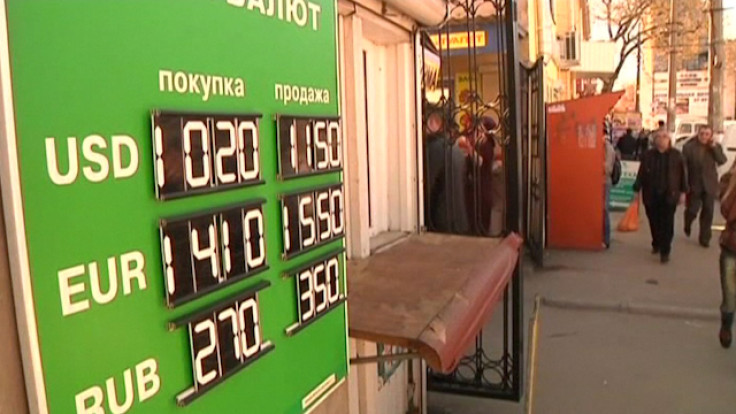Russian Giants Rosneft and Gazprom Hit by Foreign Exchange Losses

The depreciation of the rouble had a drag on the income and profitability of some of Russia's biggest companies in the last quarter.
Rosneft, Russia's biggest oil and gas company reported a 13.7% fall in net income in the first quarter which it attributed, in a written statement, to its "revaluating foreign currency loans and borrowings".
Yesterday, Gazprom announced a 7% fall in profit for the first quarter of the year, also attributed to foreign exchange losses. Severstal, Russia's second-largest steel producer, today announced a net loss of $100m for the quarter, with a combination of poor steel prices and exchange rate losses hitting its profitability.
However, despite the sanctions, Rosneft doubled its profits to 289bn roubles (£4.8bn, $8.1bn) in the first quarter.
The profit rise is a reflection of Rosneft's new capability to challenge Gazprom in Russia's natural gas sector. Until this year, Gazprom had a monopoly on gas exports, but Rosneft, along with privately-owned Novatek, obtained export licenses in 2013.
The company has since brought numerous new gas fields online, resulting in production more than doubling and a 69.3% rise in revenues. Rosneft is lobbying the Kremlin for greater access to Russia's pipelines and gas fields.
Analysts had anticipated a rise in profits, but this return beats most expectations. A Reuters poll of analysts had predicted core profits (before interest, taxation, depreciation and amortisation) of 280.7bn roubles.
Liza Ermolenko, a Russia analyst at Capital Economics, tells IBTimes UK that the ongoing depreciation of the currency could have a two-pronged effect on the fortunes of Russian exporters.
"On the one hand, a weaker rouble boosts the rouble-value of their export revenues. But on the other hand, it increases the rouble-value cost of servicing forex debt – a particular problem for Rosneft, who had to borrow significant amounts last year to buy TNK-BP.
"In addition to the weaker rouble, the companies are also being affected by the deterioration in investor sentiment towards Russian assets, which is affecting borrowing costs. This has been reflected in a sharp slowdown of bond issuance by Russian companies," she said.
The results come in the middle of a turbulent week for Rosneft and Russia's wider economy. On Wednesday, the IMF downgraded its growth forecast for Russia in a response to the drag on investor confident caused by western sanctions.
Having initially predicted growth of 3%, the IMF is now expecting acceleration of just 0.2%, as Russia's economy teeters on the brink of recession.
© Copyright IBTimes 2024. All rights reserved.






